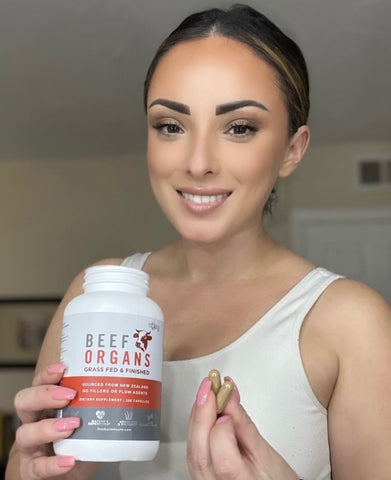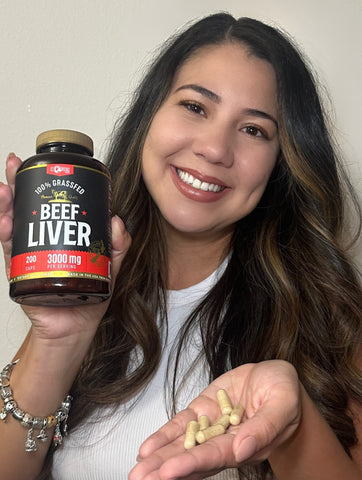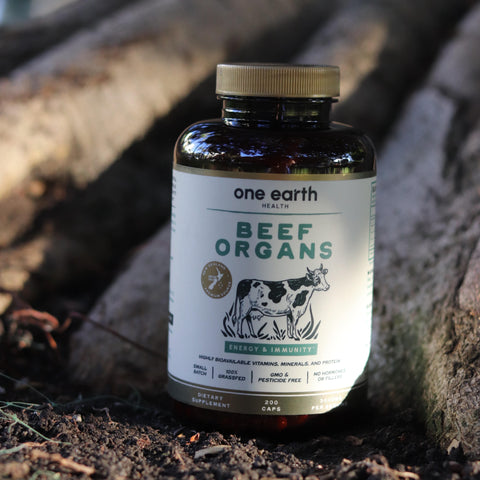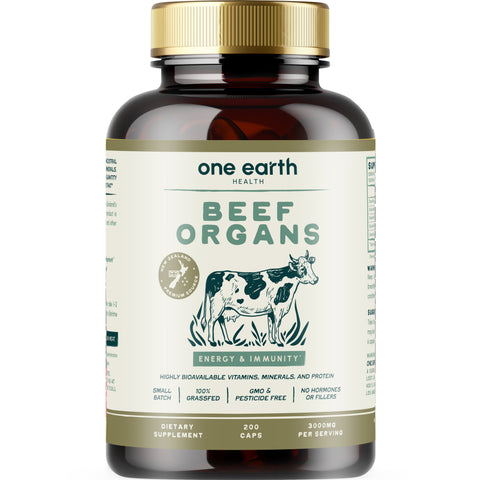Are Beef Organs A Good Source of Vitamins?
Beef organs contain tons of essential vitamins. The vitamin content in beef liver, heart, kidneys, and other organ meats is higher than in muscle meat, making them a superior source of nutrition.

Article jumplinks:
Why are vitamins so important?
What are the water-soluble vitamins in beef organs?
Beef organ water-soluble vitamins chart
What fat-soluble vitamins are found in beef organs?
Bioavailability and absorption of vitamins in beef organs
Do organ meats or muscle meat contain more vitamins?
Are beef organ supplements good for you?
What are the best beef organ supplements?
If you don't want to cook organs—either because of the "ick" factor or because you don't have the time—you can still reap their health benefits with our beef organ capsules. Get all those essential vitamins and other nutritious compounds in a convenient package.
Why Are Vitamins So Important?
Vitamins are organic compounds that our bodies require in small amounts to carry out essential functions. They act as coenzymes or precursors to coenzymes—they either directly assist enzymes in their functions or serve as building blocks for molecules that assist enzymes. Their role is to facilitate important biochemical reactions necessary for all important bodily processes.
Our bodies don’t naturally produce enough vitamins on their own, so we rely on diet (or dietary supplements). Here's why it’s important to obtain plenty of vitamins from your diet:
- Vitamins are vital for the growth and development of the body, particularly during childhood, adolescence, and pregnancy. They play major roles in bone development, cell division, and tissue repair.
- Certain vitamins provide antioxidant defenses. They help neutralize harmful free radicals in the body, which can damage cells and contribute to aging and diseases.
- As coenzymes or precursors to coenzymes, vitamins are necessary for the proper functioning of enzymes involved in metabolism. For example, B vitamins play a crucial role in energy production by helping convert food into energy.
- Vitamins support the immune system. They help regulate immune responses and enhance the body's ability to fight off infections.
- Vitamins support collagen production, which is essential for maintaining healthy skin, hair, and nails.
- Some vitamins are involved in regulating hormone production and neurotransmitter synthesis. This helps regulate mood and improve cognitive function and mental health.
- The lack of certain vitamins in the diet can lead to deficiency diseases. For example, vitamin C deficiency causes scurvy, vitamin D deficiency leads to rickets, and the deficiency of vitamin B12 results in pernicious anemia.
- Vitamins help reduce the risk of chronic diseases such as cardiovascular disease, certain cancers, and osteoporosis.
- Some vitamins help enhance the absorption of calcium and other minerals, promoting bone and dental health.
Each vitamin has its unique function or set of functions, yet they all work synergistically to keep our bodies functioning at their best.
There are two main types of vitamins: water-soluble and fat-soluble vitamins.
Water-Soluble Vitamins in Beef Organs
Water-soluble vitamins dissolve in water and are not stored in the body, so they need to be replenished regularly. They are particularly involved in energy metabolism and cell growth. Bovine organs are excellent sources of water-soluble vitamins. They contain significantly higher amounts than muscle meats.
Beef organs contain all of the essential water-soluble vitamins.
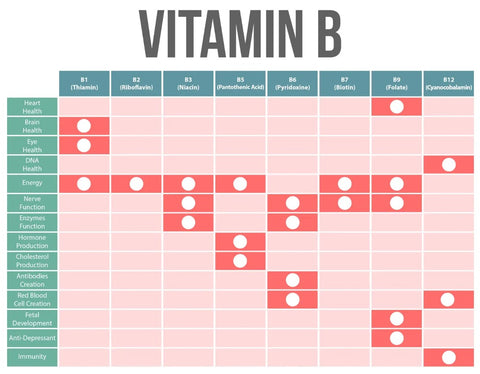
Vitamin B1
Vitamin B1, or thiamine, helps convert carbohydrates into energy and plays a major role in the synthesis of neurotransmitters. This makes it crucial for energy metabolism, the nervous system, cognitive function, and heart health.
Beef liver and kidneys are packed with vitamin B1. Just 100 grams of raw beef liver contains about 0.189 mg of thiamine, while the same amount of beef kidney provides around 0.36 mg. The recommended daily intake of thiamine is 1.2 mg for adult men and 1.1 mg for adult women. This means that a single serving of beef liver or kidney can get you well on your way to meeting your daily thiamine needs.
Read more about the vitamin content in beef liver and vitamins found in beef kidney.
If you’re not okay with the smell and taste of braised garlicky liver, why not pop some beef liver capsules? They are premium quality, convenient, and deliver all the nutrient-dense benefits of bovine liver without the strong flavors.
Vitamin B2
Vitamin B2, or riboflavin, aids in energy production, cellular growth, and metabolism of fats, carbohydrates, and proteins. It also supports healthy skin, eyes, and nervous system function. B2 vitamin also maintains the lining of the digestive tract and is necessary for the formation of red blood cells and antibodies.
Beef liver is among the best dietary sources of vitamin B2. 100 grams of cooked beef liver provides 3.42 mg of riboflavin. The daily recommended intake is 1.3 mg for adult men and 1.1 mg for adult women, while pregnant and breastfeeding women should consume at least 1.4 mg of vitamin B2 every day.
Vitamin B3
Vitamin B3, also known as niacin, helps reduce inflammation, improves cholesterol levels, and supports skin health. It’s also important for energy metabolism and keeping your nervous and digestive systems up and running.
Beef organs are excellent sources of vitamin B3. According to Healthline, a single 100-gram portion of cooked beef liver delivers 17.5 mg of niacin. That's an impressive 91% of the recommended daily allowance (RDA) for men and over 100% of the RDA for women, all in one serving.
Nutrient Optimiser suggests that 100 grams of beef heart provides between 6.68 mg and 7.5 mg of niacin, which is equal to roughly 41.8% to 47% of the recommended daily allowance. Beef thymus, although not as high in niacin as liver or heart, offers up to 3.5 mg of vitamin B3 per 100 grams of cooked beef thymus. That’s 12% to 22% of the RDA.
If you're looking for a nutrient-dense superfood rich in B-complex vitamins, look no further than our beef thymus organ supplement. This premium supplement supports immune function, aids in tissue repair, and promotes overall health—all in an easy-to-take capsule.
Vitamin B5
Vitamin B5, or pantothenic acid, is essential for the synthesis of coenzyme A, which is involved in energy production and the metabolism of fats, carbohydrates, and proteins. It also supports healthy skin, hair, and nervous system function.
Beef organs, such as the liver and kidney, are rich sources of vitamin B5. 100 grams of liver delivers 142% of the daily value (DV) for vitamin B5, while the same amount of beef kidney provides 61% of the DV.
Vitamin B6
Pyridoxine or vitamin B6 is involved in many essential metabolic processes, including protein and amino acid metabolism, red blood cell formation, and nervous system function. It helps support immune health and regulate mood.
If you want to meet and exceed your daily vitamin B6 requirements, put beef organs on the menu. Here’s why:
- 85 grams (3 ounces) of beef liver contains more than 50% of the DV.
- 100 grams (3.5-ounce serving) of beef kidney provides 39% of the DV.
- An 85-gram serving of beef heart provides 17% of the DV for vitamin B6.
You can find all three nutritious organs in our grass-fed, pasture-raised beef organ supplement. At One Earth Health, we make sure you get the highest quality and most nutrient-dense organs available.
Vitamin B7
Vitamin B7, also known as biotin, supports healthy skin, hair, and nails, and helps regulate blood sugar levels. Bovine organs are good sources of biotin, providing higher amounts than muscle meats. Just 75 grams of cooked beef liver provides nearly 31 micrograms of biotin (103% of the DV), while beef kidneys contain 98.6 micrograms per 100 grams (299% of the DV).
Vitamin B9
Vitamin B9 is also known as folate or folic acid. Pregnant women may be more familiar with this nutritious gem, as vitamin B9 is an essential nutrient for healthy fetal development, as well as DNA synthesis and red blood cell formation.
If you’re looking to promote proper neural tube development, cellular growth, and oxygen transport throughout the body, doctors recommend munching on beef liver regularly. One 100-gram serving of beef liver contains 290 μg of folate, which is 73% of the DV.
Vitamin B12
Cobalamin, better known as vitamin B12, is important for red blood cell formation, nervous system function, and DNA synthesis. It also supports brain health and energy production. Vitamin B12 also maintains healthy homocysteine levels. High levels of this amino have been associated with an increased risk of heart disease and cognitive decline.
If you want to protect your cardiovascular and neurological health, enrich your diet with enough beef organs. Cow organ meat may help prevent vitamin B12 deficiency, which can cause anemia, neurological disorders, and other health issues.
Beef liver is the best dietary source of vitamin B12 among all organ meats. 100 grams of liver meat provides 59.3 mcg of vitamin B12, which is about 988% of the DV. Beef kidneys contain 31.1 mcg of vitamin B12, while cow heart delivers around 8 mcg per 100 grams. Both amounts are well above the recommended daily value, so eat up.
We have an easy way for you to obtain your recommended daily intake of vitamin B12 and boost your overall health. Order our beef organ capsules and experience the power of nature's most nutrient-dense superfoods. With our convenient, easy-to-swallow capsules, you get the highest quality and purity without the dirty work.
When you’re ready, we have a few tricks up our sleeves on how to prepare beef organs to rock your tastebuds.
Vitamin C
Vitamin C, or ascorbic acid, is a potent antioxidant. This essential nutrient has many vital roles in our bodies, such as:
- It helps protect cells from oxidative stress (we mentioned before how oxidative stress from free radicals can contribute to many health issues).
- It is essential for the synthesis of collagen, a protein that provides structure and support to skin, bones, and connective tissues. That’s why ascorbic acid is an indispensable addition to beauty products, including facial creams, serums, and moisturizers, as well as supplements and topical treatments for connective tissue health.
- Vitamin C supports the body's natural defenses against infections and diseases, promoting immune function and overall health.
- Vitamin C also enhances the absorption of non-heme iron. This type of iron is typically found in plant-based foods and is less readily absorbed by our bodies, but vitamin C can significantly enhance its absorption.
Beef liver and kidneys stand out as two of the most vitamin C-rich organ meats. Beef liver offers a modest 1.3 mg of ascorbic acid per 100 grams, while beef kidneys boast an impressive 10.6 mg per 100 grams, which is 18% of the DV. Other organ meats such as spleen, pancreas, and thymus offer trace amounts of vitamin C.
Beef Organ Water-Soluble Vitamins Chart
The following values are based on available data from the USDA.
|
100 grams |
Vitamin B1 |
Vitamin B2 |
Vitamin B3 |
Vitamin B5 |
Vitamin B6 |
Vitamin B7 |
Vitamin B9 |
Vitamin B12 |
Vitamin C |
|
Liver |
0.189 mg |
2.76 mg |
13.2 mg |
7.17 mg |
1.08 mg |
100 µg |
290 µg |
59.3 µg |
1.3 mg |
|
Heart |
0.238 mg |
0.906 mg |
7.53 mg |
/ |
0.279 mg |
/ |
3 µg |
8.55 µg |
2 mg |
|
Kidneys |
0.357 mg |
2.84 mg |
8.63 mg |
3.97 mg |
0.665 mg |
98 µg |
/ |
27.5 µg |
9.4 mg |
|
Pancreas |
0.14 mg |
0.445 mg |
4.45 mg |
3.9 mg |
0.2 mg |
/ |
3 µg |
14 µg |
13.7 mg |
|
Spleen |
0.05 mg |
0.37 mg |
8.4 mg |
1.08 mg |
0.07 mg |
/ |
4 µg |
5.68 µg |
45.5 mg |
|
Thymus |
0.109 mg |
0.345 mg |
3.45 mg |
3.03 mg |
0.16 mg |
/ |
/ |
2.13 µg |
34 mg |
According to the U.S. Department of Agriculture, these values may change based on the method of consumption. Raw liver contains 59.3 mcg of B12; when you braise it, it can offer around 70.6 mcg, while pan-fried liver contains 83.1 mcg of vitamin B2.
Whichever method of cooking you choose, these beef organs are packed with water-soluble vitamins. Liver meat remains the highest source of essential nutrients. If you're not a fan of the taste or texture of liver, our grass-fed, pasture-raised beef liver supplement is a convenient way to get all the benefits without worrying about how you’re going to cook it.
Fat-Soluble Vitamins In Beef Organs
Fat-soluble vitamins are stored for longer in the body's fatty tissues. Unlike water-soluble vitamins, these vitamins can accumulate in the body over time. This means that excessive amounts of fat-soluble vitamins potentially lead to an imbalance in the body.
Beef organs contain the following fat-soluble vitamins:
- Vitamin A
- Vitamin D
- Vitamin E
- Vitamin K
Vitamin A
Vitamin A (retinol) is essential for:
- Vision
- Immune function
- Skin health
- Reproductive health
- Bone health
- Neurological function
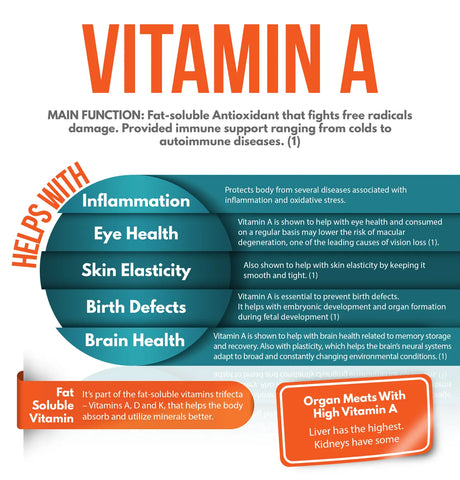
Beef liver is an excellent source of vitamin A. A 100-gram serving of cooked beef liver provides about 1048% of the daily value (4950 µg) for vitamin A.
Other beef organs also contain significant amounts of retinol, although in lower concentrations than the liver. A 100-gram serving of beef kidney provides approximately 137% of the daily value (647 µg) for vitamin A, while the same amount of beef heart contains about 15 µg of vitamin A.
Vitamin D
Vitamin D (calciferol) is vital for calcium absorption, bone health, immune function, and inflammation reduction.
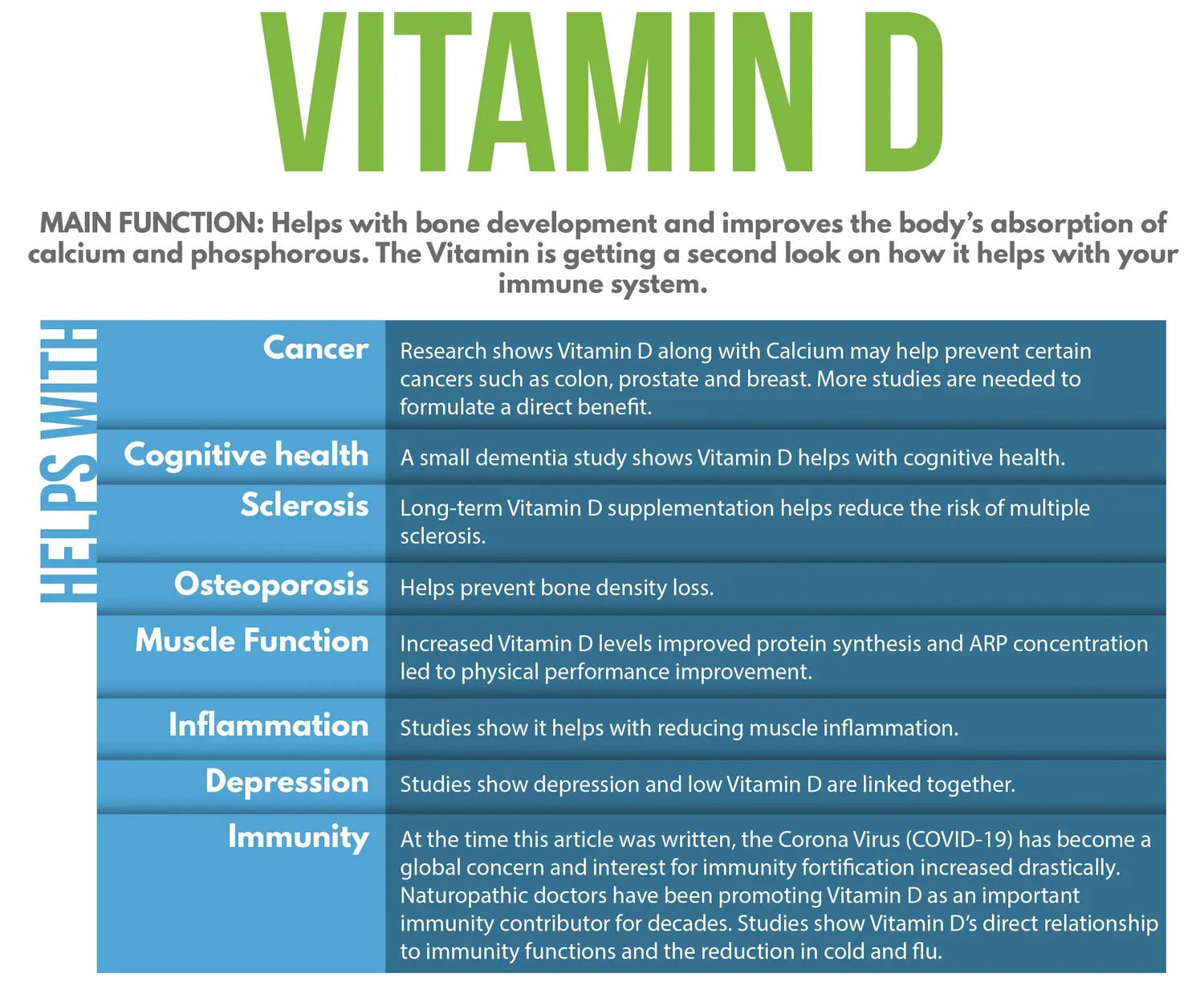
This vitamin is primarily obtained through sun exposure, and to a lesser extent from dietary sources. Certain beef organs contain vitamin D in small amounts.
For example, a 2.5-ounce serving of beef liver has 1.2 µg of vitamin D. This amount is relatively low compared to the daily requirements. The recommended daily allowance for vitamin D is 15 µg for adults up to 70 years old, and 20 µg for those older than 70.
Vitamin E
Vitamin E (tocopherol) is an antioxidant—it protects the body from oxidative damage and supports immune function. A form of vitamin E, called alpha-tocopherol, is found in low concentrations in beef liver and other organs.
Vitamin K
Vitamin K (phylloquinone) is crucial for blood clotting and bone metabolism. Beef organs contain this essential vitamin, but in trace amounts. According to the USDA, beef liver contains 3.1 µg of vitamin K per 100 grams.
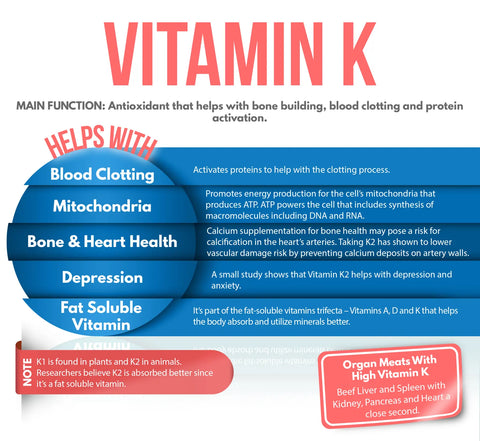
If you're looking to boost your intake of fat-soluble vitamins, beef organs are a great place to start. They may not be the most concentrated sources of some of these vitamins, but they still provide a significant amount of the essential nutrients needed to stay healthy. And if you're not a fan of the taste of organ meats, One Earth Health offers a convenient and easy way to get all the benefits of vitamins in a single, easy-to-swallow capsule.
Order our beef organ supplement and experience the difference our grass-fed, pasture-raised beef organs make.
"Great product. Nice packaging with fast shipping. I have not gotten ready to eat organs yet so this product has all the bang in a pill form. Thanks for such a great product."
—Andrew Blackford
Bioavailability and Absorption of Vitamins From Beef Organs
Bioavailability refers to the proportion of a nutrient that is absorbed and used by the body. Unlike plant-based sources, the vitamins from bovine organs are more readily absorbed by the body because they are found in forms that are more easily recognized and used by the human digestive system.
Several factors can influence the bioavailable form and absorption of vitamins from beef organs, such as:
- The presence of other nutrients
- Cooking methods
- The person’s health status
For example, the presence of fat in beef organs can enhance the absorption of fat-soluble vitamins. Cooking methods that preserve the integrity of the organs, such as gentle simmering or low-temperature roasting, can help maintain the vitamin content and improve their bioavailability.
Organ Meat vs Muscle Meat
Organ meats are often referred to as “nature’s multivitamins” because of their concentrated levels of vitamins. Beef organs are more nutrient-dense than muscle meat.
According to the U.S. Department of Agriculture (USDA), 100 grams of cooked beef liver contains:
- 2715% of the daily value for vitamin B12
- 263% of the DV for vitamin B2
- 109% of the DV for vitamin B3
- 60% of the DV for vitamin B6
For comparison, 100g of beef tenderloin contains:
- 70.2% of the DV for vitamin B12
- 23.5% of the DV for vitamin B2
- 28.8% of the DV for vitamin B3
- 33.5% of the DV for vitamin B6
In the chart below, you can see that beef liver is a more comprehensive source of essential vitamins than other animal-based or even plant-based foods.
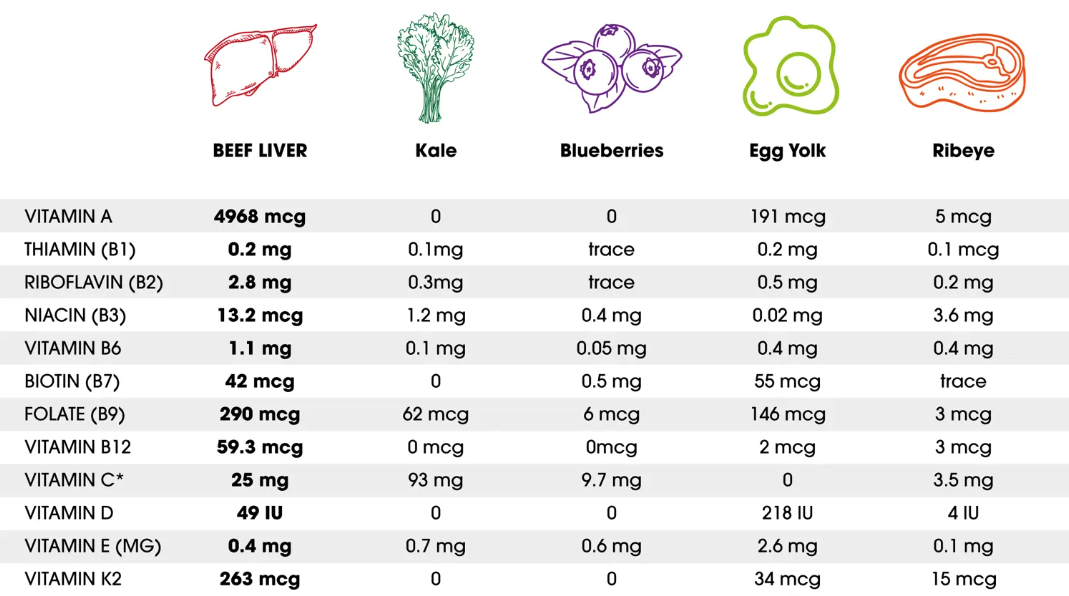
As we’ve already seen, beef liver is an exceptional source of fat-soluble and water-soluble vitamins. While not as vitamin-rich as the liver, kidneys, and heart still contain substantial amounts.
Muscle meat provides a good source of certain B vitamins, such as niacin and vitamin B6, but is low in other vitamins. Beef liver contains small amounts of vitamin D, while your regular steak or ground beef is not a significant source of this nutrient.
Are Beef Organ Supplements Good for You?
Many people want the benefits of organ meat, but they don’t enjoy their taste or texture. Some find organs inconvenient to prepare. Beef organ supplements offer a fantastic alternative. When you choose beef organ supplements, opt for the highest-quality products that use natural, organic ingredients and avoid harmful additives or chemicals.
Our offal supplements are made from desiccated (freeze-dried) organs such as the liver, heart, kidney, pancreas, and spleen. They provide the same nutritional benefits as fresh organs, but in a more convenient form. Our beef organ supplements provide a concentrated source of the essential vitamins, minerals, protein, and other nutritious compounds found in quality organ meats, without the need to cook and eat them fresh.
Organ meats are high in cholesterol and purines, which may be a concern for those struggling with high cholesterol levels or gout. Also, excessive vitamin A intake can potentially cause toxicity if you consume excessive amounts for an extended period.
As with any new supplement regimen, consult your healthcare provider to ensure that beef organ supplements are appropriate for your individual health needs and goals. Any risks can be minimized by choosing high-quality supplements from reputable sources.
Never settle for mediocre supplements when you can have the best. One Earth Health’s products are a premier choice for your health.
Try the Best Beef Organ Supplements
Our products are sourced from grass-fed cattle in New Zealand, raised on small family farms that prioritize the health and well-being of their animals and the environment. These private farmers employ sustainable, ethical practices to ensure the highest quality animal organs, free from harmful additives, hormones, or antibiotics.
With One Earth Health, you can feel confident that you're getting the best possible support for your health and well-being, thanks to the unmatched quality and integrity of our beef organ supplements.
If you want to learn more about the incredible health benefits of beef organ meats, One Earth Health has you covered. Our free resource library is packed with informative guides, recipes, and tips to help you incorporate beef livers, kidneys, hearts, and other nutrient-packed organs into your diet with ease.
Our mission is not just to provide you with the tools for optimal health, but also to empower you with the knowledge to make informed decisions about your well-being.
Beef Organs FAQ
Which beef organs are high in magnesium?
Beef heart and kidney are rich sources of magnesium. This essential mineral plays a crucial role in cardiovascular health, bone health, dental health, and energy management. Liver and kidney meat are also a rich source of iron, essential amino acids, and B vitamins. Try eating more beef liver and kidneys to make sure you're getting enough magnesium.
Can beef liver replace a multivitamin?
While beef liver is an excellent source of many essential vitamins and minerals, it may not provide all the nutrients found in a comprehensive multivitamin. Beef liver is particularly rich in vitamin A, B vitamins, and iron, which are essential for immune health, energy levels, and brain function. When you incorporate beef liver into your diet, along with other organs of animals such as heart and kidney, you can significantly boost your intake of key nutrients and support optimal health.
Do beef organs have probiotics?
Beef organs do not naturally contain probiotics. Probiotics are beneficial bacteria that support gut health. They should be a part of a balanced diet that also includes nutrient-dense organ meats. Organ meats can support your digestive health and improve immune function by providing essential vitamins, minerals, and essential amino acids—all of which are essential for maintaining a healthy gut lining and supporting the growth of beneficial gut bacteria.
Does beef liver balance hormones?
Beef liver is packed with nutrients that bolster hormone balance. These include vitamin A (essential for thyroid function) and B vitamins (which play a role in stress management and energy levels). Hormone balance is complex and depends on many factors; one of the most important factors is diet. Beef liver is also a good source of high-quality protein, which is essential for maintaining healthy hormone levels. When you incorporate beef liver into your diet, you support your endocrine health.
Is organ meat good for the skin?
Organ meats are nutritional powerhouses that offer many skin care benefits. Here are only some of them:
- Organ meat is packed with bioavailable vitamins and minerals that support healthy, glowing skin. Beef liver is an excellent source of vitamin A, which is essential for cell turnover and collagen production, helping to keep your skin looking youthful and radiant.
- Bovine organs also contain high levels of zinc. This mineral plays a crucial role in wound healing, reducing inflammation, and maintaining skin elasticity.
- Beef liver is rich in hyaluronic acid, a compound that helps keep your skin hydrated and plump, minimizing the appearance of fine lines and wrinkles.
Is organ meat better than vegetables?
Both organ meats and vegetables are important components of a balanced diet, offering different nutritional benefits. Ideally, a well-rounded diet should include both nutrient-dense, high-quality organ meats and a variety of colorful vegetables to ensure that your body receives all the essential nutrients it needs to thrive.
Organ meats are more nutrient-dense than muscle meats. They contain high concentrations of essential vitamins, minerals, and amino acids. These bioavailable nutrients are crucial for optimal health, including skin care, brain health, and immune function.
Vegetables are a fantastic source of fiber, antioxidants, and phytochemicals. They provide all the vitamins and minerals your body needs for skin health, digestive function, and disease prevention.
How often should you eat liver?
You should eat liver as often as you like or need for health reasons. Most experts recommend limiting liver intake to once or twice a week. Beef liver is undeniably nutritious, but it is also high in vitamin A. Excessive amounts of vitamin A can lead to toxicity if you consume too much.
To reap the benefits of this incredible superfood without overdoing it, incorporate moderate portions of high-quality, grass-fed beef liver into your diet once or twice weekly. This approach allows you to enjoy the numerous health benefits of the liver, such as improved skin care, brain health, and immune function, while minimizing the risk of vitamin A toxicity.
Does cooking liver destroy nutrients?
Cooking liver does not diminish its impressive nutrient profile. The liver contains some heat-sensitive vitamins such as vitamin C, so cooking the liver for a longer period may slightly reduce its levels. Overcooking liver can lead to some nutrient loss and result in a tough, rubbery texture, which may kill the nutrients and give you an inedible piece of liver.
To preserve the maximum amount of nutrients in beef liver, opt for gentle cooking methods such as sautéing or lightly frying. These techniques maintain the liver's nutrient density while improving its taste and texture, making it a delicious and nourishing addition to your diet. When prepared properly, cooked liver is an excellent source of bioavailable vitamins and minerals that support nearly all aspects of health, including skin care, brain function, and immune response.
Does meat age your skin?
Contrary to popular belief, muscle meat and organ meats do not contribute to skin aging. These nutritional powerhouses can support your skin health and promote a youthful appearance. Beef liver is an excellent source of vitamin A, zinc, and hyaluronic acid, all of which play crucial roles in maintaining healthy, radiant skin. Vitamin A stimulates cell turnover and collagen production, while zinc helps reduce inflammation and promotes wound healing. Hyaluronic acid keeps the skin hydrated and plump, minimizing the appearance of fine lines and wrinkles.
A diet high in processed meats and saturated fats may contribute to inflammation and oxidative damage, which can negatively impact skin health over time. To support healthy, youthful-looking skin, stick to high-quality, grass-fed organ meats such as beef liver, and a balanced diet rich in colorful vegetables, fruits, and whole grains.
Is beef bone marrow a good source of vitamins?
Beef bone marrow contains several essential vitamins. The key vitamins found in the bone marrow are:
- Vitamin A. Beef bone marrow is an excellent source of vitamin A, which is crucial for maintaining healthy vision, immune function, and skin health.
- Vitamin B12. Bone marrow is rich in vitamin B12, an essential nutrient that supports red blood cell formation, neurological function, and DNA synthesis.
- Vitamin K2. Bone marrow contains vitamin K2, a fat-soluble vitamin that plays a vital role in bone and calcium metabolism and cardiovascular health.
- Riboflavin (vitamin B2). Beef bone marrow also provides the antioxidant riboflavin, a B-vitamin that is essential for energy metabolism, cellular growth, and function.
- Pantothenic acid (vitamin B5). Bone marrow contains pantothenic acid, a B-vitamin that is involved in the synthesis of coenzyme A. This compound is crucial for energy metabolism and the synthesis of fatty acids, cholesterol, and certain neurotransmitters.
Bone marrow is also a rich source of minerals, healthy fats, and protein. You can incorporate healthy amounts of bone marrow into your diet by ordering our beef bone marrow supplements.
What types of cow meat should I avoid?
Most parts of a cow can be consumed. There are a few of them that people typically avoid due to potential health risks or cultural preferences. These include:
- Brain and spinal cord. In some countries, it is forbidden to consume beef brains and spinal cord due to the risk of bovine spongiform encephalopathy (BSE), also known as "mad cow disease."
- Cow eyes are not commonly eaten in most Western countries.
- Cow reproductive organs, such as the uterus and ovaries, are not typically eaten.
- The cow’s adrenal glands are not usually consumed.
- Hooves and horns are not typically consumed but may be used to make gelatin or animal feed.
Resources
Clt, E. J. M. R. (2023, March 23). 16 Foods That Are High in Niacin (Vitamin B3). Healthline. https://www.healthline.com/nutrition/foods-high-in-niacin
Nutrition facts for beef heart, recommended daily values and analysis. (n.d.). NutrientOptimiser. https://nutrientoptimiser.com/nutritional-value-beef-variety-meats-and-by-products-heart-raw/
FoodData Central. (n.d.). https://fdc.nal.usda.gov/fdc-app.html#/
FoodData Central. (n.d.). https://fdc.nal.usda.gov/fdc-app.html#/food-details/168626/nutrients
